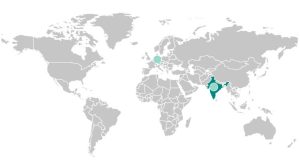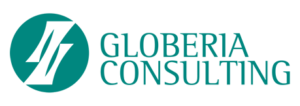Introduction
The ability to speak German is crucial for doctors and healthcare professionals, especially if you want to work or study in Germany. This article offers practical tips and advice on how doctors and healthcare professionals can successfully learn German to start their professional careers in beautiful Germany.
- The importance of the German language in the medical field in the German healthcare system.
The German language is of great importance in the medical world in Germany; the German language is also used in countries such as Austria and Switzerland. Knowledge of German not only makes communication with patients, colleagues and medical staff easier, but is also crucial for the recognition of qualifications and professional integration into the German healthcare system.
- Start learning early
The process of learning German requires time and commitment. Doctors should therefore start learning the language early in order to create a solid foundation. It is never too early to take German courses or to learn the basics of the language with the help of self-study materials. There are the following levels in the German language A1, A2, B1, B2, C1 & C2. The C1 level is required for every foreign doctor to get a job in Germany.
- Take language courses
Participating in structured language courses is an effective way to learn German. Many cities offer special German courses for medical staff that are tailored to the needs of doctors and medical professionals. These courses often focus on medical vocabulary and the specific linguistic requirements in a professional context.
Special tip: You can start the lessons and exams for A1, A2, B1 and B2 in your home country and come to Germany to learn C1 and prepare for the FSP exam.
- Use online resources and language apps
In today’s digital era, there are a variety of online resources and language apps that make learning German easier. Doctors can use mobile applications such as Duolingo, Babbel or Rosetta Stone to improve their language skills at their own pace. These platforms also offer the opportunity to expand medical vocabulary.
- Practice regularly with native speakers
Regular communication with native speakers is crucial to improving language skills. Doctors can look for tandem partners to deepen their knowledge of German in informal discussions. This not only allows you to apply what you have learned, but also promotes cultural understanding and intercultural communication skills.
- Immerse yourself in German culture and medicine
In order to master the German language effectively, it is important to immerse yourself in the country’s culture and medicine. Doctors can achieve this by reading specialist literature, watching German medical programs or attending training events. This helps in understanding not only the language but also the cultural nuances in the medical context.
- Create specific medical vocabulary
Physicians should develop specific medical vocabulary relevant to their professional needs. This includes technical terms, medical abbreviations and expressions used in everyday work environments. Creating index cards or creating a personal dictionary can be helpful here.
- Participation in medical conferences and seminars
Participation in medical conferences and seminars not only offers the opportunity to expand your professional knowledge, but also enables you to apply the acquired German skills in a professional environment. Networking with colleagues and experts also promotes the exchange of experiences and information.
Conclusion
Learning German for doctors and medical professionals requires time, commitment and a targeted approach. By combining structured language courses, online resources, regular practice with native speakers, and immersion in German culture, physicians can maximize their success in mastering the German language for the medical field. This not only makes professional integration easier, but also contributes to more effective patient communication and a successful career in the German-speaking medical environment.



